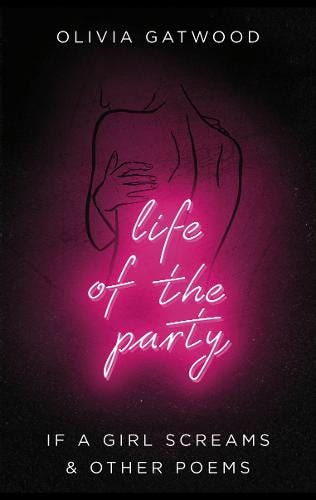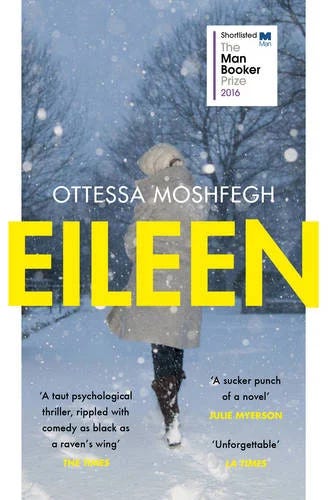#20 Rage against the patriarchy
Podcast guest Salomée talks about her experience with female rage.
I’m delighted to hand over to Salomée Ornetti, my latest podcast guest, who is a French native now based in Brighton, England. Salomée is a self-described creative who loves poetry, emotions lost in translation, words as spells and anything related to writing, sisterhood, and witchcraft.
We got to natter about our shared love of translated literature, as well as our experience of making a life for oneself abroad. It was so nice to hear about her life in Brighton, which is a very queer friendly place, and how she uses clothes to express herself.
I’ll be back next week with more words, but for now, it’s over to Salomée!
Hi! I’m Salomée, and in ancient religious texts, my namesake Salomé demanded the head of St. John the Baptist served on a silver platter.
So, when my grandmother declared my birth at the town hall, she deliberately spelt my name with an extra “e”. She shared with me recently that it was to ward off the spell, so that I wouldn’t have the same destiny as Salomé and the Seven Veils.
For the longest time I hated my name, especially as a kid when it was the prime target of petty playground mockery. I now fully embrace it.
Not to make all this about me, but just to say that I'm familiar with rage because it’s embedded in my very name, and we all know that naming things makes them more real.
Below is a passage from Salomé’s Wikipedia page that I thought might be relevant:
The 1934 fantasy novella “A Witch Shall Be Born” by Robert E. Howard, features an evil prehistorical witch named Salomé, and it is clearly implied that she was an earlier incarnation of the New Testament figure of the same name. Salome's words are:
"Every century a witch shall be born." So ran the ancient curse. And so it has come to pass. Each was named Salomé. I too am Salomé. It was always Salomé, the witch. It will always be Salome, the witch, even when the mountains of ice have roared down from the pole and ground the civilisations to ruin, and a new world has risen from the ashes and dust—even then there shall be Salomes to walk the earth, to trap men's hearts by their sorcery, to dance before the kings of the world, and see the heads of the wise men fall at their pleasure.
What else is female rage, other than a direct reaction to the patriarchy? For me, it wouldn’t exist if we didn’t live with these deep rooted systems of oppression and their overlaps. Patriarchy, white supremacy, capitalism, colonialism… I realise as I type this is that it all goes back to (re)claiming ownership of something that isn’t yours and trying to control it. Claiming ownership of a land, ownership over someone else's body, ownership of people's minds.
I can’t remember the last time I felt like I had agency over my own body. I have spent my whole adolescence too busy focused on how my body was perceived and how it looked, and forgot to inhabit it fully on my own terms.
I have been told in the past that I was angry when I was voicing boundaries, which feels very telling. Anger can be confused with so many different emotions, and oftentimes, I cry when I’m angry. Mostly because my words are getting mixed up on the way from my brain to my mouth and I can’t articulate what I feel properly, so the only solution available is tears and muteness.
I love how female rage is slowly becoming a core theme to endlessly explore in popular culture, in literature, in the media. It has almost become common in mythology retellings and I love seeing the reclamation of figures like Circe or Medusa.
There’s a lot of shame connected to anger and also we tend to associate it with an emotion that is unhealthy and destructive but I believe that, like any other emotions, if we learn how to embrace it and express it, it can be a huge catalyst for change. I always say when I speak about poetry and my relationship to writing poetry: “take something painful and turn it into something beautiful.”
And also, as a French person, we’ve been renowned for going out on the streets to protest when our rights are being stripped away from us. I know it’s a bit of a cliché but there’s a big part of truth in it.
Protesting and demanding decent human rights for all is part of our history and chanting in a public space, making placards, taking up space, is something not only liberating (as women who have been confined to private spheres and asked to stay quiet and don’t make waves) but has also proven that showing disagreement can lead to concrete change. It is also very topical with what we’re seeing today with manifesting for the people of Palestine, the Congo, and everyone who is being subjected to genocide and violence.
Salomée’s reading recommendations, on the theme of female rage.
A note on The FBC Paris
If you’re new here, welcome! The FBC Paris is a passion project. Read our mission statement.
Follow us on Instagram: this is where you can find out everything about our monthly book clubs.
Listen to the podcast: I chat to authors, translators, friends of the book club, and booksellers.
If there is anything you’d like to see featured in the newsletter or have something to contribute, send an email to thefbcparis@gmail.com









